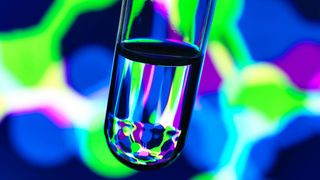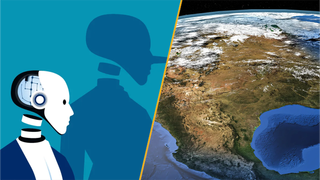Science News: Recent scientific discoveries and expert analysis
Read the latest science news and recent scientific discoveries on Live Science, where we've been reporting on groundbreaking advances for over 20 years. Our expert editors, writers and contributors are ready to guide you through today's most important breakthroughs in science with expert analysis, in-depth explainers and interesting articles, covering everything from space, technology, health, animals, planet Earth, and much more.
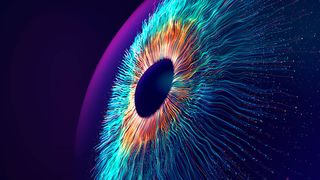
Explainers | Everything you need to know about the science news that matters.
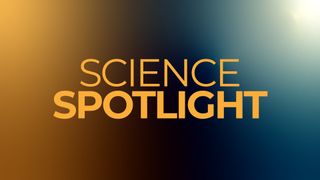
Science Spotlight | Shining a light on new science transforming our world.
Latest news

Secretive Russian military satellites release mystery object into orbit
By Andrew Jones published
The classified Kosmos satellite trio has sparked intrigue in space-tracking circles.
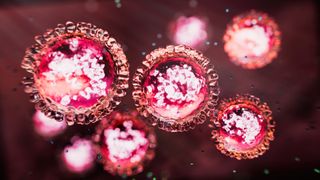
US measles outbreak tops 600 cases — what to know about the disease
By Emily Cooke last updated
As measles outbreaks in the U.S. continue, here's what to know about how the disease spreads, what its symptoms are, and how to protect yourself and community from the illness.
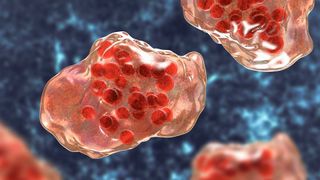
2 school-age children have died in Texas measles outbreak, as total cases pass 480
By Nicoletta Lanese published
Texas officials reported the death of a second school-age child in the state's ongoing measles outbreak.

How a 'mudball' meteorite survived space to land in the jungles of Central America
By Keith Cooper published
"The fall of Aguas Zarcas was huge news in the country. No other fireball was as widely reported and then recovered as stones on the ground in Costa Rica in the past 150 years."

AI creates better and funnier memes than people, study shows — even when people use AI for help
By Owen Hughes published
In a study, memes created by OpenAI's GPT-4o model were, on average, rated funnier, more creative and more shareable than those created by humans.

Tropical tree in Panama has evolved to kill its 'enemies' with lightning
By Jacklin Kwan published
Tonka bean trees survive lightning strikes — and use the powerful electric shocks to kill their competitors.

130,000-year-old baby mammoth goes under the knife
By Patrick Pester published
Researchers have performed a necropsy on a 130,000-year-old baby mammoth preserved in the Siberian permafrost.

Years of 'confusion and debate' are over — research finds hormone therapy is good for women's hearts in early menopause
By Matthew Nudy published
A more nuanced understanding of hormone therapy now suggests that its benefits for heart health depend on how soon after menopause onset it is prescribed.

Watch a private German rocket explode during 1st orbital launch attempt from European soil (video)
By Mike Wall published
A dramatic video shows Isar Aerospace's first orbital launch attempt, which ended with a fiery crash into the frigid sea about 30 seconds after liftoff.

Scientists say these North American rivers 'shouldn't exist.' Here's why they do.
By Rebecca Dzombak, Eos.org published
At first glance, these waterways make no sense. A new review article details why they are the way they are.
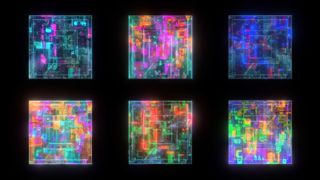
MIT 'remote entanglement' discovery could lead to scalable 'quantum supercomputers'
By Alan Bradley published
A new device enables remote entanglement, allowing distant quantum processors to communicate with one another with reduced error rates.

4,000-year-old burial of elite woman with ostrich fan reveals world's oldest known evidence of head straps
By Owen Jarus published
Around 4,000 years ago, women in Nubia were using tumplines, a form of head strap, to carry around goods and young children.

$3 million Breakthrough Prize awarded to developers of Ozempic-style drugs
By Emily Cooke published
Five researchers have been jointly awarded one of this year's Breakthrough Prizes in Life Sciences for their contributions to the development of Ozempic-style drugs.
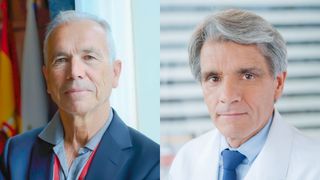
$3 million Breakthrough Prize goes to scientists that completely changed our understanding of multiple sclerosis
By Nicoletta Lanese published
Two prominent scientists who study multiple sclerosis — Dr. Alberto Ascherio and Dr. Stephen Hauser — are co-winners of a 2025 Breakthrough Prize in Life Sciences.
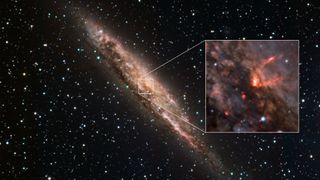
Incredible photo shows supermassive black hole blowing a jet of matter into interstellar space
By Samantha Mathewson published
A spiral galaxy known as NGC 4945 exhibits powerful winds of material blowing from the supermassive black hole located at its core in a new photo taken by the Very Large Telescope in Chile.

Scientists claim to find 'first observational evidence supporting string theory,' which could finally reveal the nature of dark energy
By Andrey Feldman published
Physicists have proposed a new model of space-time that may provide the 'first observational evidence supporting string theory,' a new preprint suggests.

Nvidia's mini desktop supercomputer gets launch window
By Alan Bradley published
The new DGX machines are portable but powerful enough to drive complex AI modules and research, with processing capabilities previously only available in data centers.

Stunning reconstruction reveals warrior from ancient Siberia
By Tom Metcalfe published
A new full-body reconstruction depicts a warrior wearing armor and holding weapons, all of which were found in a 4,000-year-old burial in Siberia.
Sign up for the Live Science daily newsletter now
Get the world’s most fascinating discoveries delivered straight to your inbox.
